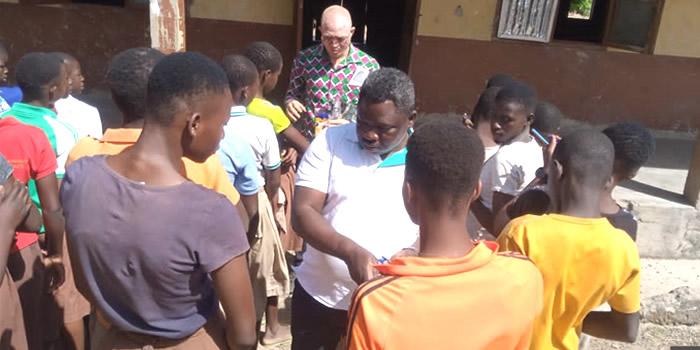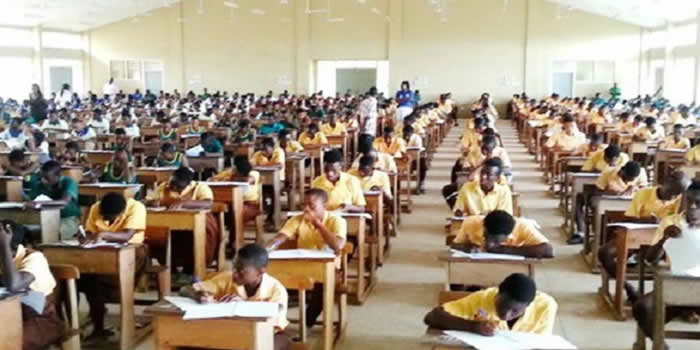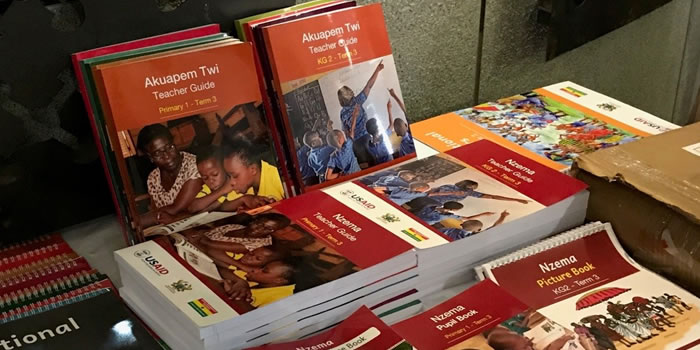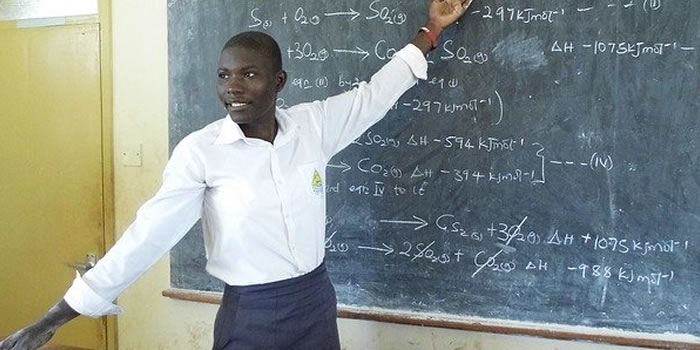

EDUCATION
Headmaster defies odds to keep Wuru children in school
Mr. Osman Salia, the head teacher of the Wuru Basic School in the Sissala East Municipality has defied all odds and helped change the face of education in the area.

Date Created : 10/3/2022 12:00:00 AM : Story Author : Mohammed Balu/Ghanadistricts.com
Despite the challenges and absence of roads, electricity, telecommunication network and other social amenities, Mr. Salia accepted to head the school for the past eleven years.
“Though there were numerous challenges, and still are, in this area, I was trained as a teacher to help impart knowledge to children no matter their geographical location, “Mr. Salia said.
There is not any link road to the community, no electricity, no proper health infrastructure, which compelled the people to transact business with and spending the Burkina-Faso CFA other than the Ghana cedi.
Mr. Salia said the existing challenges in the community affected everything including education.
“I’m committed to the work hence my decision to stay in this area,” he said.
He said one of the major challenges impacting negatively on education was information flow saying, “It is difficult to receive timely information from the Municipal Education office and difficult for us to send information.”
The bad roads and bridges affect teachers' work,but this has not changed our resolve to share knowledge to the children.”
He said only eight male teachers, teaching the 217 children from Kindergarten to Junior High School, had been very tiresome for the teachers, who had no form of incentives apart from salaries.
He said: "For the past five to seven years, the school has produced persons who are now working in public places.”
He said making sure the children were well educated with the community appreciating the work of the teachers motivated him to stay for the past eleven years.
The school has a population of 217 pupils comprising 108 boys and 109 girls.
The headmaster appealed to benevolent organizations to help the school with textbooks, furniture, teachers’ quarters and solar electricity to improve life in the area.
Some of the teachers expressed concern about the use of CFA in the community to transact business other than the Ghana cedi as a drain in their pockets.
They explained that since the Ghana cedi had depreciated every commodity was very high because things including food were being sold in the CFA equivalent.
The teachers who pleaded anonymity with the GNA said though they have been serving in the area for long, the Ghana Education Service had declined to transfer them to areas they could further their education.
“Another challenge is that the children at the Lower Primary Level cannot speak any language apart from Kasem, a language spoken in the Navrongo area, and we don’t also understand,” a teacher said.
The Wuru School was established on September 17, 1995, to bring education to the doorstep of the people. Since then, nothing has been added to the existing structures, which makes some teachers refuse postings there.
Wuruh has about 3,000 inhabitants and they are grain farmers whilst others are into the rearing of animals.
They are compelled by circumstances to reject the Ghana cedi because they can only transact business with neighbouring Burkina Faso since there are no roads to connect them with other Ghanaian communities.









 facebook
facebook
 X
X
 Youtube
Youtube
 instagram
instagram
 +233 593 831 280
+233 593 831 280 0800 430 430
0800 430 430 GPS: GE-231-4383
GPS: GE-231-4383 info@ghanadistricts.com
info@ghanadistricts.com Box GP1044, Accra, Ghana
Box GP1044, Accra, Ghana